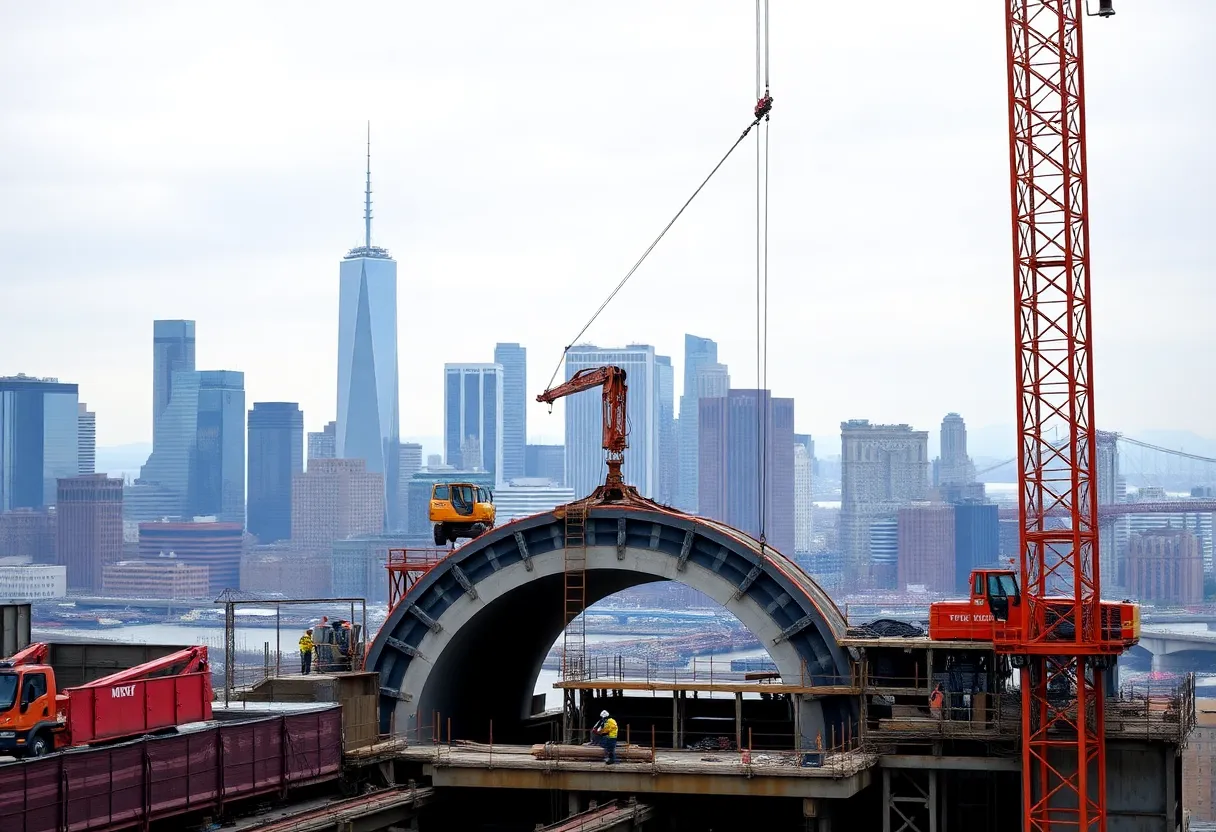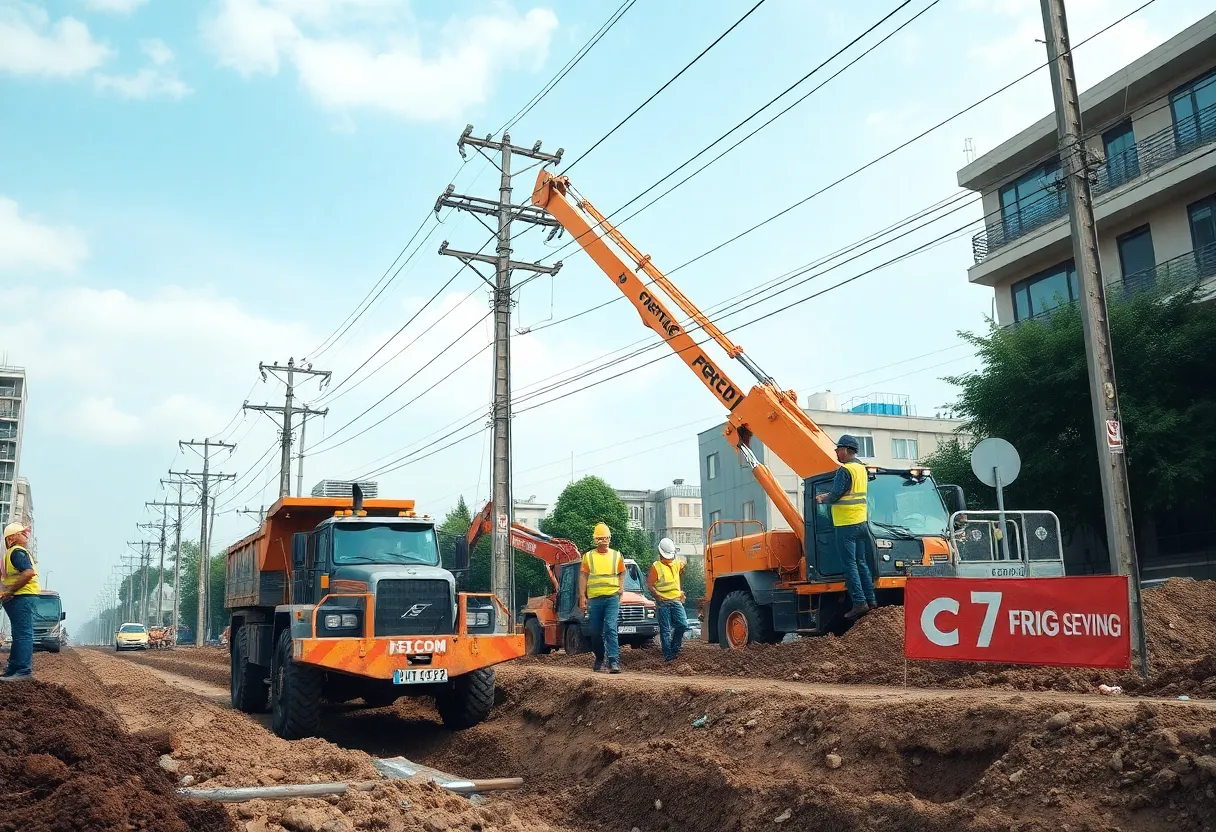News Summary
Construction projects face inherent uncertainties that lead to delays and increased costs. The integration of Artificial Intelligence (AI) into Schedule Risk Analysis (SRA) offers a revolutionary way to enhance risk management. By analyzing historical schedules and facilitating expert input, AI improves the accuracy and efficiency of predicting outcomes. This hybrid approach not only streamlines the risk identification process but also optimizes project delivery, making it a transformative solution for the construction industry.
AI Enhances Schedule Risk Analysis in Capital Projects
Recent advancements in artificial intelligence (AI) are revolutionizing how capital projects manage risks associated with scheduling. As the construction industry continues to grapple with uncertainties stemming from factors like design changes and disruptions, the need to improve risk analysis processes becomes critical. The introduction of AI tools marks a significant shift in Schedule Risk Analysis (SRA), enhancing decision-making in these projects.
The Challenge of Schedule Delays
Capital projects frequently face delays due to numerous unpredictable variables. Traditional methods for assessing these risks rely on a deterministic approach followed by workshops to identify potential problems and forecast outcomes. However, this conventional methodology is often time-consuming and resource-intensive. Furthermore, the effectiveness of traditional SRA is highly dependent on the accuracy of the input data, which can sometimes skew the results.
The Rise of AI in Schedule Risk Analysis
AI provides a promising solution to enhance the SRA process without replacing the important role played by expert judgment. By analyzing historical data from previous projects, AI platforms can benchmark task durations, understand logic paths, and identify sequencing patterns. This ability allows for a quick identification of anomalies and unrealistic durations in project schedules, ultimately helping to forecast potential slippage points effectively.
Three-Stage AI-Enhanced SRA Process
The integration of AI into SRA introduces a three-stage process that optimizes project schedules prior to running Monte Carlo simulations. The stages include:
- AI-Based Schedule Benchmarking: This initial stage involves analyzing historical schedules to identify any issues within the current project baseline.
- Expert Risk Identification and Validation: In this phase, risk experts validate and quantify project-specific risks. This step links relevant risks to activities within a corrected deterministic schedule.
- Monte Carlo Simulation and Analysis: The final stage utilizes the logic-corrected schedules and validated risks to forecast outcomes, providing valuable insights for decision-making.
While AI can import schedule files and generate outputs like probability distribution graphs, it cannot assign risks to specific activities without expert involvement. Thus, the role of human expertise remains essential in ensuring the effectiveness of the process.
Generative AI Technologies and Their Role in Risk Management
New generative AI (GenAI) technologies are supporting risk management by producing and validating risk statements. This capability can streamline preparations for the risk register, making it more efficient. AI applications enhance readiness for SRA by improving both the quality of schedule inputs and risk assessments before simulations take place.
Benefits of AI-Driven Risk Management Tools
AI-driven tools significantly aid project management by optimizing time and improving accuracy. This combination boosts the overall quality of decision-making. As numerous platforms integrating AI for risk modelling emerge in the construction industry, they promise to improve efficiency while simultaneously reducing costs. This hybrid approach—the combination of AI’s data-driven insights with expert analysis—ensures that decision-making remains reliable.
Looking Ahead: Improved Project Delivery and Sustainability
By embracing AI technologies in construction, the industry can anticipate better project delivery alongside much-needed reductions in costs. Enhanced efficiency through improved risk management supports not only timely project completions but also fosters sustainability in capital projects. As the integration of AI tools continues to evolve, their contribution to the overall quality of project inputs becomes increasingly significant.
Deeper Dive: News & Info About This Topic
Additional Resources
- FTI Consulting: Harnessing AI for Schedule Risk
- Oracle: AI in Construction
- TechTarget: Emerging Technologies in Construction
- RP Realty Plus: AI-Driven Risk Mitigation
- ForConstructionPros: Smarter Construction with AI
- Wikipedia: Artificial Intelligence
- Google Search: Construction Risk Management
- Google Scholar: AI in Construction
- Encyclopedia Britannica: Risk Management
- Google News: AI in Construction
Author: Construction NY News
The NEW YORK STAFF WRITER represents the experienced team at constructionnynews.com, your go-to source for actionable local news and information in New York and beyond. Specializing in "news you can use," we cover essential topics like product reviews for personal and business needs, local business directories, politics, real estate trends, neighborhood insights, and state news affecting the area—with deep expertise drawn from years of dedicated reporting and strong community input, including local press releases and business updates. We deliver top reporting on high-value events such as the New York Build Expo, infrastructure breakthroughs, and cutting-edge construction technology showcases. Our coverage extends to key organizations like the Associated General Contractors of New York State and the Building Trades Employers' Association, plus leading businesses in construction and real estate that power the local economy such as Turner Construction Company and CMiC Global. As part of the broader network, including constructioncanews.com, constructiontxnews.com, and constructionflnews.com, we provide comprehensive, credible insights into the dynamic construction landscape across multiple states.





